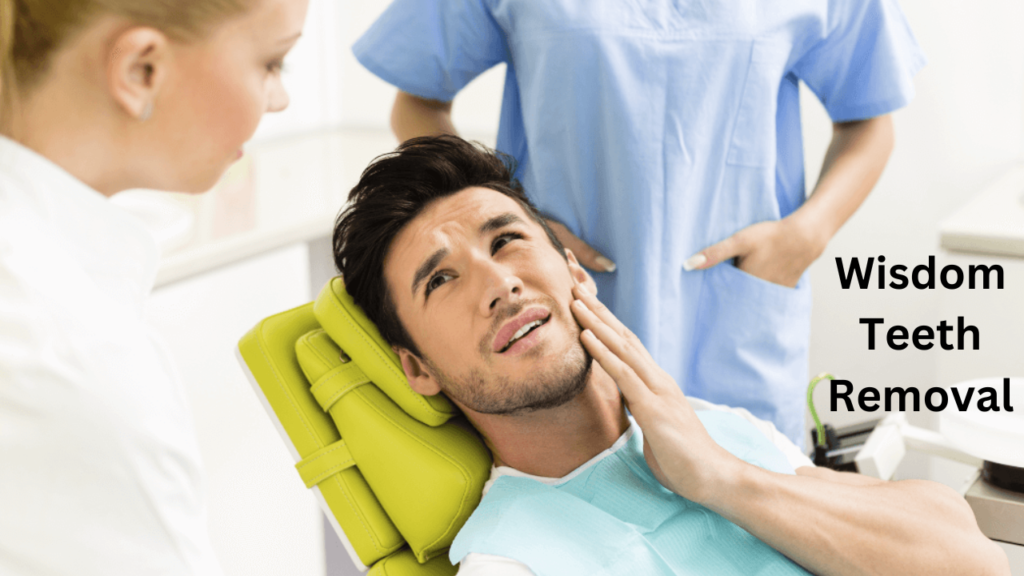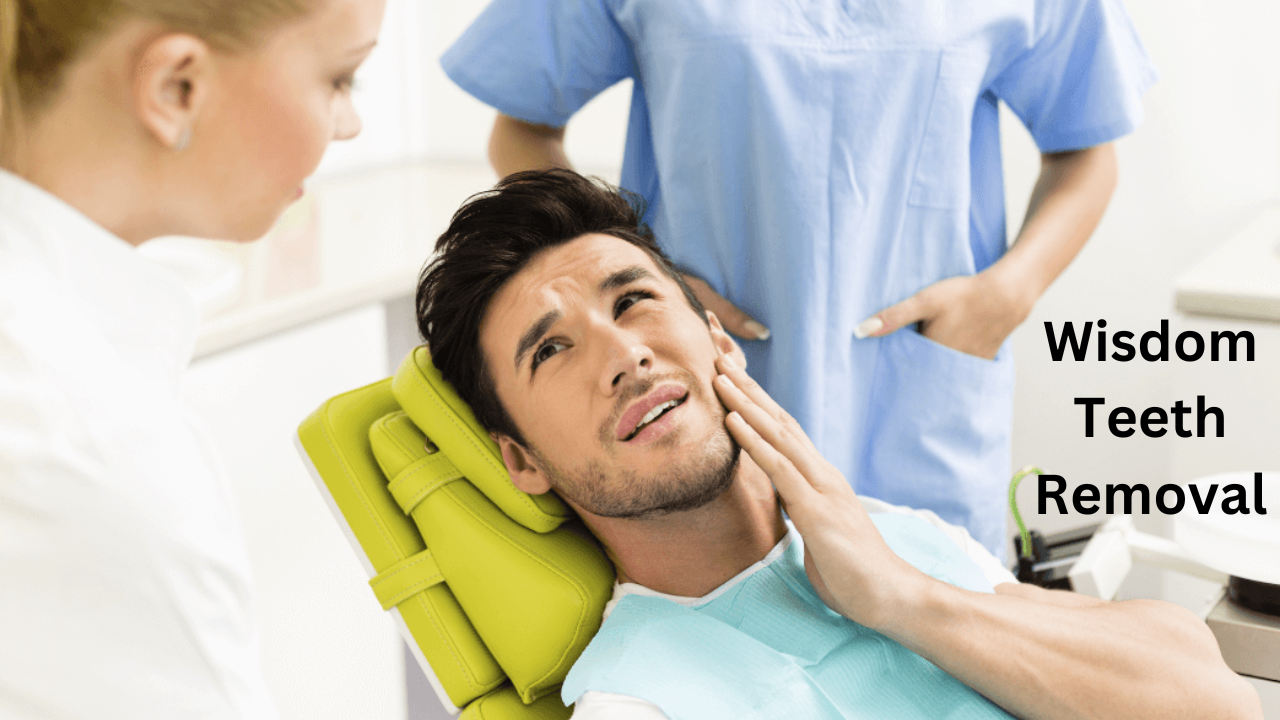Introduction to Wisdom Teeth removal
Wisdom teeth can be quite a mystery for most of us. Known scientifically as “third molars,” these teeth are the last to emerge in your mouth, typically appearing in your late teens or early twenties. But have you ever wondered why wisdom teeth are so often removed? Let’s dig in!

What Are Wisdom Teeth?
Wisdom teeth are the third set of molars located at the back of your mouth. Most people have four, but it’s not uncommon for some to have fewer or none at all.
Why Do We Have Wisdom Teeth?
Anthropologists believe our ancestors needed wisdom teeth to chew tough, coarse foods like roots, nuts, and raw meat. Today, with softer diets and advanced dental hygiene, they’re not essential—and they often cause more trouble than they’re worth!
Why Wisdom Teeth Removal Is Often Necessary
For many, wisdom teeth come in without issues. However, for others, they can cause problems due to limited space in the mouth or other complications.
Common Issues with Wisdom Teeth
Problems often arise when wisdom teeth don’t have enough room to grow properly. This can cause them to become “impacted,” leading to pain, infection, or even damaging other teeth.
Impacted Wisdom Teeth and Their Complications
Impacted wisdom teeth are those that don’t fully erupt due to obstruction by other teeth or jawbone. This can result in pain, swelling, and even cyst formation.
Risks of Keeping Problematic Wisdom Teeth
Keeping impacted or partially erupted wisdom teeth can lead to recurring infections, gum disease, and even potential alignment issues with other teeth.
Signs You Might Need Wisdom Teeth Removal
So, how do you know if it’s time to get those wisdom teeth checked out?
Pain and Swelling
Persistent pain or swelling in the back of your mouth can be a sign that your wisdom teeth need attention.
Difficulty Chewing and Jaw Stiffness
If you find it hard to chew or open your mouth comfortably, it might be due to wisdom teeth crowding.
Infection and Gum Disease
Partially erupted wisdom teeth can create pockets where bacteria thrive, leading to gum disease and infections.
Consultation and Diagnosis
The first step is to visit a dentist or oral surgeon for a comprehensive exam.
Dental Exam and X-Rays
Your dentist will typically take X-rays to see the position of your wisdom teeth and determine if removal is necessary.
Discussing Your Symptoms with a Dentist
Be sure to describe any pain, swelling, or difficulties chewing. This helps your dentist make an informed decision.
Understanding the Procedure’s Necessity
Your dentist will explain why removal is recommended (if it is) and what you can expect.
Preparing for Wisdom Teeth Removal
Getting ready for wisdom teeth removal involves a bit of preparation.
Pre-Surgery Instructions
Your dentist will give you specific guidelines, such as avoiding food and drink a few hours before surgery.
Medications and Fasting
Depending on your case, you may be prescribed medications to take before the procedure. Fasting is often required to ensure the anesthesia works safely.
Arranging Transportation and Time Off
Since you may be groggy after anesthesia, arrange for a friend or family member to drive you home.
The Wisdom Teeth Removal Procedure
Let’s walk through what happens on the day of surgery.
Types of Anesthesia
Depending on your comfort level and the complexity of your case, your dentist may use local, sedation, or general anesthesia.
Step-by-Step of the Surgery
The dentist or surgeon will make incisions to remove the teeth, especially if they’re impacted. The gums are stitched up after the teeth are removed.
Duration of the Procedure
Wisdom teeth removal can take anywhere from 30 minutes to an hour, depending on the complexity.
What to Expect Immediately After Surgery
The recovery room is your first stop after surgery, where you’ll be monitored for a short time.
Recovery Room Experience
After surgery, you’ll be observed for a bit to make sure you’re stable and not experiencing any complications.
Handling Initial Pain and Discomfort
Expect some discomfort and swelling. Pain medications are often prescribed to manage this.
Post-Surgery Care and Instructions
Follow all post-op instructions carefully to avoid complications like dry socket or infection.
Post-Operative Care and Recovery
The first few days post-surgery require careful attention to healing.
Tips for Managing Pain and Swelling
Ice packs can help reduce swelling, and over-the-counter painkillers are often recommended for pain relief.
Foods to Eat and Avoid
Stick to soft foods like yogurt, soup, and mashed potatoes. Avoid anything crunchy, spicy, or hot that could irritate the area.
Caring for Your Wounds
Gently rinse with salt water as instructed by your dentist to keep the area clean and avoid infection.
Potential Complications and How to Avoid Them
Although uncommon, complications can occur, so it’s helpful to be aware of them.
Dry Socket and Its Prevention
Dry socket is a painful condition that occurs if the blood clot in the socket dislodges. Avoid using straws or spitting forcefully to prevent it.
Infection Signs and When to Contact Your Dentist
If you notice prolonged swelling, pus, or a foul taste in your mouth, contact your dentist immediately.
Managing Excessive Bleeding
Some bleeding is normal, but if it persists beyond a few hours, follow up with your dentist for advice.
Long-Term Healing and Oral Health
With proper care, your recovery will progress smoothly.
How Long Does It Take to Heal?
Healing typically takes a few weeks, but most discomfort subsides within a few days.
Signs of Healthy Recovery
Gradual reduction in pain and swelling are signs of a smooth recovery.
Maintaining Oral Hygiene Post-Surgery
Brush your teeth carefully, avoiding the surgical area until it’s fully healed.
Frequently Asked Questions
Does Everyone Need Their Wisdom Teeth Removed? Not necessarily—only if they cause issues.
Is Wisdom Teeth Removal Painful? Discomfort varies but can be managed with medication and rest.
How Long Should I Take Off Work or School? Plan for a few days to a week, depending on your recovery.
What Foods Should I Avoid After Surgery? Avoid crunchy, spicy, and hot foods.
Can I Smoke or Drink Alcohol Post-Surgery? It’s best to avoid both for at least a week to promote healing.
Finding the Best Dentist Near Me
For More Visit Now Wisdom Teeth Removal Wisdom Teeth Removal Wisdom Teeth Removal Wisdom Teeth Removal Wisdom Teeth Removal Wisdom Teeth Removal Wisdom Teeth Removal Wisdom Teeth Removal
